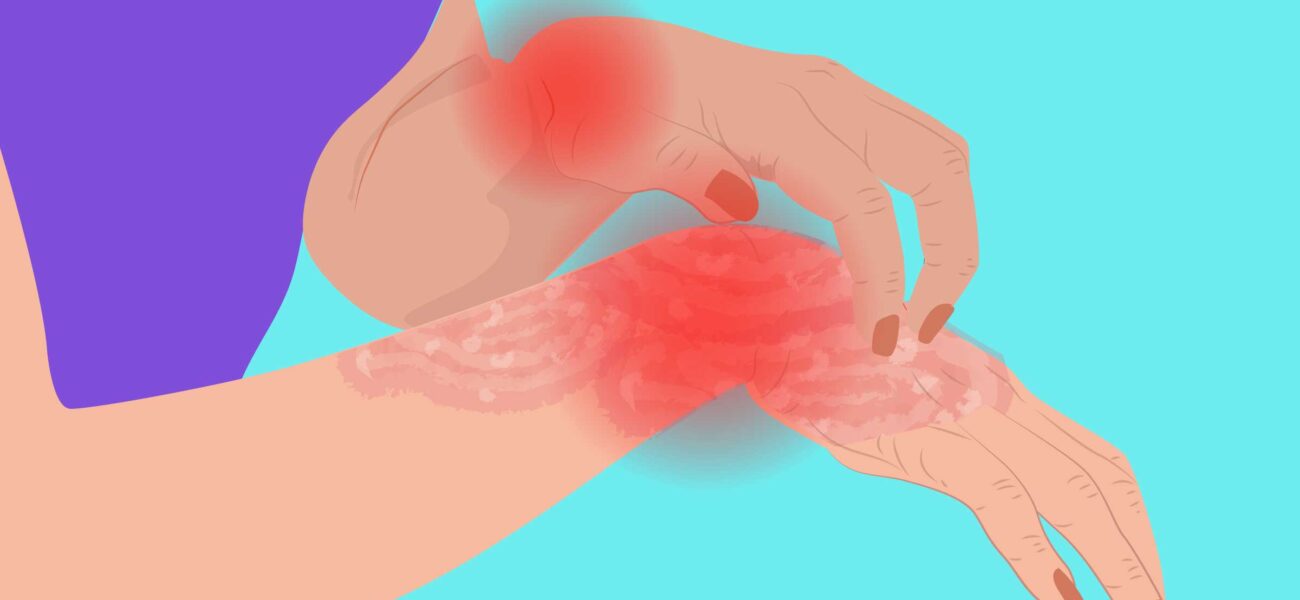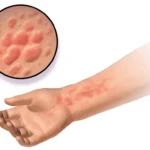Itching is a common sensation that makes you want to scratch your skin. It can be annoying, uncomfortable, and sometimes unbearable. Itching can have various causes, such as dry skin, allergies, infections, or diseases. In this blog post, we will explore some of the most common causes, symptoms, and treatment options for itching.
What is itching?
Itching, also known as pruritus, is a sensation that triggers the desire or reflex to scratch. Itching can affect any part of the body or the whole body. It can be localized (in one area) or generalized (all over). Itching can occur without any visible changes on the skin or with other signs such as rash, bumps, blisters, redness, or swelling.
What are the symptoms of itching?
The main symptom of itching is the urge to scratch the affected area. Scratching can provide temporary relief but can also damage the skin and cause more itching or infection. Other symptoms that may accompany itching include:
• Burning or stinging sensations.
• Dryness or flakiness of the skin.
• Cracking or bleeding of the skin.
• Inflammation or infection of the skin.
• Scarring or discoloration of the skin.
The severity and duration of itching may vary depending on the cause and location of the itching. Some itching may be mild and short-lived while some may be intense and chronic.
What causes itching?
There are many possible causes of itching, but some of the most common ones include:
• Dry skin: Dry skin is one of the most common causes of itching. Dry skin can result from low humidity, cold weather, aging, excessive washing, harsh soaps, or certain medications. Dry skin can cause itching by reducing the natural oils and moisture that protect the skin barrier.
• Allergies: Allergies are abnormal immune reactions to substances that are normally harmless. Allergies can cause itching by releasing chemicals such as histamine that stimulate nerve endings in the skin. Allergies can be triggered by foods, drugs, insect bites, pollen, dust mites, animal dander, mold spores, latex, or cosmetics.
• Infections: Infections are caused by microorganisms such as bacteria, viruses, fungi, or parasites that invade and multiply in the body. Infections can cause itching by irritating or inflaming the skin or by releasing toxins that stimulate nerve endings in the skin. Some common infections that cause itching include fungal infections (such as athlete’s foot or ringworm), bacterial infections (such as impetigo or cellulitis), viral infections (such as chickenpox or herpes), or parasitic infections (such as scabies or lice).
• Diseases: Diseases are conditions that affect the normal functioning of the body or its organs. Diseases can cause itching by affecting the nerves, blood vessels, hormones, or immune system that regulate the sensation of itching. Some common diseases that cause itching include: Liver diseases (such as hepatitis or cirrhosis): These are conditions that impair the liver’s ability to filter toxins or produce bile. This can result in a buildup of waste products or bile salts in the blood or skin, causing itching. Kidney diseases (such as chronic kidney failure or nephrotic syndrome): These are conditions that impair the kidney’s ability to filter waste products or maintain fluid balance. This can result in a buildup of urea or other toxins in the blood or skin, causing itching. Thyroid diseases (such as hyperthyroidism or hypothyroidism): These are conditions that affect the thyroid gland’s production of thyroid hormones, which regulate metabolism, growth, and development. This can result in abnormal levels of thyroid hormones in the blood, causing itching. Diabetes mellitus: This is a condition that affects the body’s ability to use glucose, which is a main source of energy. This can result in high levels of glucose or ketones in the blood, causing dehydration, dryness, and itching. Iron deficiency anemia: This is a condition that occurs when there is not enough iron in the blood to make hemoglobin, which carries oxygen to cells. This can result in low levels of oxygen in tissues, causing itchiness.
Lymphoma: This is a type of cancer that affects lymphocytes, which are white blood cells that fight infection and disease. This can result in abnormal growths of lymphocytes in lymph nodes, spleen, liver, or skin, causing itchiness.
How are itching diagnosed?
To diagnose itching, a healthcare provider will usually ask about the history and characteristics of the itching. They may ask questions such as:
When did the itching start?
Where is the itching located?
How severe is the itching?
What does the itching feel like?
What makes the itching better or worse?
Do you have any other symptoms?
Do you have any medical conditions?
Do you take any medications?
Do you have any allergies?
Have you had any recent exposures to irritants?
or allergens?
Then, your healthcare provider will perform a physical examination to look for signs of dryness, inflammation, infection, or disease in the skin or nearby areas. They may also use a device called a dermatoscope to magnify and illuminate the skin and look for clues to the cause of the itch. Depending on the suspected cause of the itch, your healthcare provider may order some tests to confirm the diagnosis or rule out other causes. These tests may include: Skin scrapings: These are samples of skin cells taken from the affected area and examined under a microscope for signs of infection or disease. Skin biopsies: These are small pieces of skin tissue taken from the affected area and sent to a laboratory for analysis. Blood tests: These are tests that measure levels of blood cells, antibodies, enzymes, hormones, or other substances that may indicate infection, disease, or allergy. Urine tests: These are tests that measure levels of chemicals or microorganisms in urine that may indicate infection, disease, or allergy.
How are itching treated?
The treatment of itching depends on the cause and severity of the itch. Some general treatment options include: Self-care: This involves taking steps to relieve the itch and prevent further irritation or infection of the skin. Some self-care measures include: Applying a cold compress to the area to reduce inflammation and numb nerve endings. Using moisturizers to hydrate and protect dry skin. making an oatmeal bath to soothe and cleanse irritated skin. Try over-the-counter (OTC) antihistamines or anti-itch creams to reduce histamine levels and block nerve signals in the skin. Avoiding scratching or rubbing the itch to prevent damage and infection of the skin. Wearing loose-fitting clothing made of natural fabrics to avoid friction and heat on the skin. Avoiding exposure to potential irritants or allergens such as soaps, detergents, chemicals, cosmetics, perfumes, plants, or animals. Medications: These are drugs that help treat infection, inflammation, allergy, or disease that may cause or worsen itch. Some medications include: Antibiotics to treat bacterial infections. Antifungals to treat fungal infections. Antivirals to treat viral infections. Corticosteroids to reduce inflammation and immune response in the skin.



